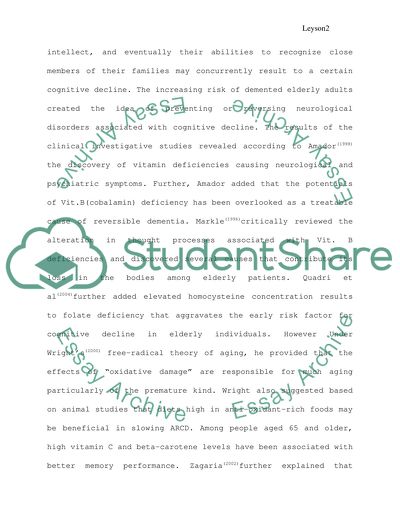Cite this document
(“Inadequate nutrition and cognitive decline Essay”, n.d.)
Inadequate nutrition and cognitive decline Essay. Retrieved from https://studentshare.org/miscellaneous/1515743-inadequate-nutrition-and-cognitive-decline
Inadequate nutrition and cognitive decline Essay. Retrieved from https://studentshare.org/miscellaneous/1515743-inadequate-nutrition-and-cognitive-decline
(Inadequate Nutrition and Cognitive Decline Essay)
Inadequate Nutrition and Cognitive Decline Essay. https://studentshare.org/miscellaneous/1515743-inadequate-nutrition-and-cognitive-decline.
Inadequate Nutrition and Cognitive Decline Essay. https://studentshare.org/miscellaneous/1515743-inadequate-nutrition-and-cognitive-decline.
“Inadequate Nutrition and Cognitive Decline Essay”, n.d. https://studentshare.org/miscellaneous/1515743-inadequate-nutrition-and-cognitive-decline.


